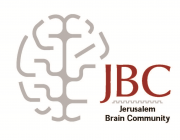
Rami Aqeilan
Institute for Medical Research, IMRIC
Hebrew University School of Medicine, Jerusalem
p: 02-6758609
Although the main focus of my lab research is cancer, our recent findings led us to learn further about the contribution of DNA damage to neurodegeneration.
We are therefore studying brain development and how large genes that are susceptible to play a role in re-arrangment contribute to neuropathy. In particular, we study common fragile sites and their genes product, for example WWOX, and their role in neuropathy. Recently, missense and nonsense mutations in the WWOX gene were found to be associated with autosomal recessive CNS-related disorders. The patients described span a wide range of neurological severity, ranging from seizure and ataxia disorder associated with global developmental delay, progressive microcephaly bilateral optic atrophy in very young age children (as early as 1.5 months) – recently termed WOREE phenotype, for WWOX-Related Epileptic Encephalopathy. In some other patients a less severe mutation was associated with Spino-Cerebellar Ataxia autosomal Recessive, type 12 (SCAR12). Modelling WWOX loss in mice in our lab revealed a dramatic phenotype including growth retardation, hypoglycemia and premature death (2-3 weeks). In addition, Wwox null mice display spontaneous and audiogenic seizures resembling those phenotypes seen in patients with WWOX gremline mutations. Our studies aim to understand the molecular action of WWOX in the different brain cell types including neural stem cells, neurons, astrocytes and oligodendrocytes in maintaining the brain physiology. We intend to study how WWOX is involved in regulating neurological disorders such as epilepsy, cerebellar ataxia, Parkinsons and Alzheimer’s, all of which show alteration in the WWOX gene. We hope our studies will extend our understanding of brain development and benefit patients suffering from neurodegeneration through implementation of regenerative medicine/gene therapy approaches.

